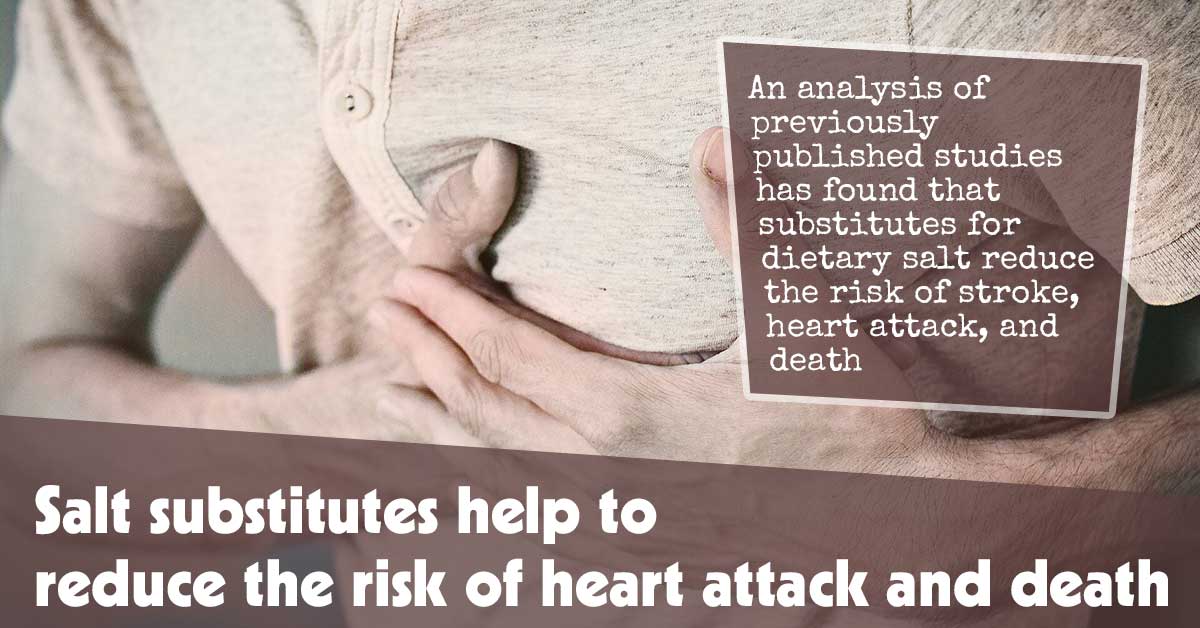An analysis of previously published studies has found that substitutes for dietary salt reduce the risk of stroke, heart attack, and death from cardiovascular disease and all causes. The benefits of these substitutes are likely applicable to individuals worldwide.1✅ JOURNAL REFERENCE
DOI: 10.1136/heartjnl-2022-321332
Cardiovascular disease is the main cause of death globally, and hypertension is a huge risk for early death. A high sodium and low potassium diet is known to increase blood pressure.
About 1.28 billion individuals worldwide have hypertension, even though over half of them are not diagnosed.
Salt substitutes are known to help reduce blood pressure. Another large study found that salt substitutes reduced the risk of stroke, heart attacks, and early death, but it wasn’t clear if these benefits would be applicable to other parts of the world.
So the researchers searched databases for randomized studies that reported on the impact that a salt substitute had on early death, cardiovascular health, and blood pressure.
Blood pressure is made up of 2 numbers and is measured in mmHg. The higher number is systolic which indicates the force at which the blood is pumped into the body by the heart, and the lower number is diastolic which indicates the arterial pressure when the blood fills the heart.
The results of 21 relevant studies were pooled that involved almost 30,000 individuals, conducted in South-East Asia, the Americas, the Western Pacific Region, and Europe.
The studies lasted from one month to five years. The sodium chloride proportion in the salt substitutes ranged from 33% – 75%; the potassium proportion in the salt varied from 25% – 65%.
The analysis of the data revealed that blood pressure was reduced in all the individuals with salt substitutes. The overall systolic blood pressure reduction was 4.61 mm Hg and the overall diastolic blood reduction pressure was 1.61 mmHg.
Blood pressure reductions seemed to be consistent, regardless of sex, age, geography, hypertension history, baseline blood pressure, BMI, and baseline urinary potassium and sodium levels.
Each 10% lower sodium chloride proportion in the salt substitute was linked to a 1.53 mmHg higher systolic blood pressure reduction and a 0.95 mmHg higher diastolic blood pressure reduction. There wasn’t any evidence of higher dietary potassium being linked to adverse health effects.
An analysis of the results of 5 of these studies involving over 24,000 individuals revealed that salt substitutes reduced early death risk from any cause by 11%, the risk of cardiovascular disease death by 13%, and the risks of stroke or heart attack by 11%.
There were some limitations to the results, such as variation in the design of the studies as well as that there were relatively little data for individuals who didn’t have hypertension.



